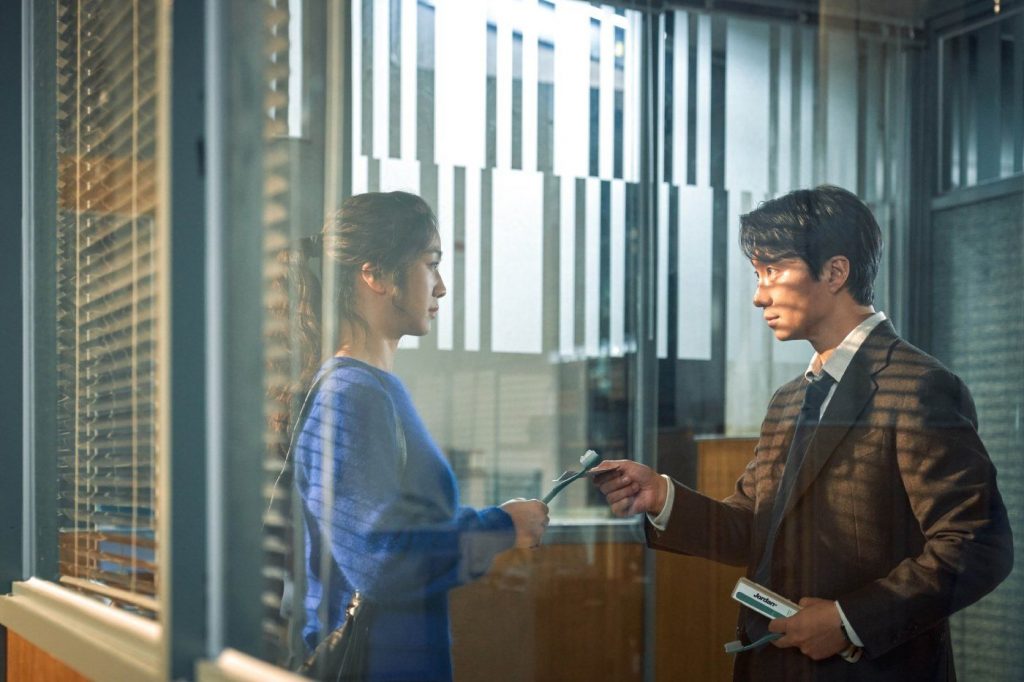Some filmmakers find a groove and work it for their entire careers. Park Chan-wook is not, to put it mildly, one of those directors. And he certainly could be; the technical innovations and storytelling acumen of, for example, his “Vengeance Trilogy” could sustain a less ambitious director for decades. But Director Park is a searcher, restless and twitchy, a filmmaker who is constantly expanding his style, even when that means breaking it apart and putting it back together again.
That’s certainly what he’s doing with his latest film (and winner of the Cannes Film Festival award for best director), Decision to Leave, a mutation of the Asian policier, film noir, and stifled romance. Even ascribing genres to it seems like an exercise in futility; half of my notes are variations on “Where is he going with this?” and at a certain point I just put down my notebook and watched, enthralled, because wherever he was going was somewhere I wanted to be.
Park Ha-il stars as Hae-jun, a restless police detective. Work requires him and his wife (Lee Jung-hyun) to have a “weekend marriage”; during the week, he works non-stop. “It’s not that I can’t sleep because of stakeout,” he tells his partner. “I do stakeout because I can’t sleep.” The department is mostly focused on a high-profile serial killer, but Hae-jun becomes obsessed with a much quieter case: a wealthy mountain climber is dead, in what appears to be an accident. But he was abusing his much younger wife, Seo-rae (Tang Wei), physically and emotionally. Hae-jun smells a motive.
He also seems to like the intense energy between he and Seo-rae – perhaps a put-on, perhaps genuine sexual attraction – and it’s hard to blame him. “Does your wife know whose home you stare into late at night?” Seo-rae asks of his stakeouts, and it’s the kind of question they let hang in the air, waiting to evaporate, though it rarely does. The screenplay, which Park wrote with Jeong Seo-kyeong, wisely generates heat but stifles it, again and again; like In the Mood for Love (though for different reasons), the participants’ resistance to their obvious attraction makes it far sexier than any consummation could be.
This makes Decision to Leave sound simpler than it is; this is a dizzyingly complicated screenplay, which slips, slides, doubles-back, confounds expectations – and then seems to come to a conclusion before launching into an entire follow-up story, several months later. (I wouldn’t dream of revealing the circumstances, but “What else can I do? It’s solely this way I can see you” is a great line.)
But Director Park is pushing further, experimenting throughout the entire two-plus hours with editing, perspective, and narrative structure, innovatively and playfully. This is a film of unexpected juxtapositions, fissures, and flourishes of form, delightfully baroque, given an extra lift by Jo Yeong-wook’s deliciously overripe score. Decision to Leave doesn’t top Park’s recent efforts – it’s neither as tight as Stoker nor as emotionally overwhelming as The Handmaiden. But it’s a thriller that genuinely thrills, and showcases a director who still has many, many tricks up his sleeve.
A-
“Decision to Leave” is out Friday in limited release.

